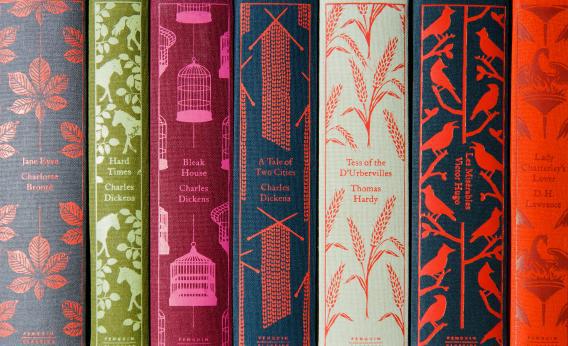For the past few years, I have been at least somewhat persuaded that the National Book Awards judges were getting too clannish with their fiction selections. Maybe, as Salon’s Laura Miller suggested, they were indeed making the prize irrelevant. After all, they did overlook big sellers like Jonathan Franzen’s Freedom and Jeffrey Eugenides’ The Marriage Plot, which were also, by the way, darn good reads. With a few exceptions—e.g. the 2009 choice, Colum McCann’s shining Let the Great World Spin—they seemed to favor small-press titles known only to the initiated, books with the kind of “poetic prose style” and “elliptical or fragmented storytelling,” to use Miller’s terms, which might delight a real literary insider, while intimidating the rest of us.
So I was happy at first to read the National Book Foundation’s announcement this past Tuesday about renovating the selection process for National Book Awards winners and finalists. They will now, the announcement explained, have a 10-book “long list” for each of the award’s four categories, as well as the traditional five-book short list, and they will also widen the pool of judges.
The awards will continue to recognize work under the headings of fiction, nonfiction, poetry and children’s literature. But by honoring more books—and by fanning speculation as to which long-listed titles make it onto the short list—they hope the revamped rules will “broaden the conversation” about reading in the United States, according to Morgan Entrekin, Vice Chairman of the Foundation’s Board of Directors. Meanwhile, booksellers, critics, and librarians will join authors on the judging panels, where Entrekin hopes they will name winners that are a “little more mainstream,” and less likely to honor, say, “a collection of stories by a university press” (Entrekin again).
A collection of stories by a university press? The horror! I have no problem with longer lists—they tend to mean more feted books, which is great—but Entrekin’s talk of broadening and mainstreaming raises a major question about what these awards are primarily for. Are they intended to honor the very best books that get published in a given year? Or is their primary goal to increase book sales?
It’s not an idle question. The National Book Awards were created in 1936 by the American Booksellers’ Association. World War II put an end to that first iteration, but the prizes were reborn in 1950, when the American Book Publisher’s Council and the Book Manufacturer’s Institute joined forces with the ABA to bring them back to life. Obviously, all of these organizations have a vested interest in book sales—which Entrekin explicitly cited as a reason for the changes. Pointing to England’s Man Booker Prize, which has a major market impact in the U.K., Entrekin said he would like to see the National Book Award “have that kind of effect.” (While I suspect the Booker’s influence speaks to larger cultural differences between the U.S. and the United Kingdom, perhaps the NBF just needs to adopt the grand British practice of tapping celebrity jurors like Hugh Grant for its literary competitions.)
Entrekin’s reforms remind me (and not just me) of the 2009 Oscars rule-change that allowed an incredible 10 films to compete for Best Picture honors, a change instituted, many said, because a broader field might include a few more popular films, perhaps one with a superhero, even—and thus lead to higher TV ratings. (They’ve since scaled back slightly.) The National Book Awards have drawn inspiration from the Academy before. After the prizes went through a rough patch in the 1970s, during which critics slammed them as insular and elitist, the NBAs were reestablished in 1980 on a “film industry model.” That meant more than 20 categories—including technical ones such as “best jacket design,” an “extravagant TV-friendly ceremony,” and a standing “academy” of 2,000 literati to vote on the winners. The whole affair was rechristened the American Book Awards.
It failed miserably. The literary old guard, including Roger Straus and more than 40 former winners, penned an irate petition against the ABA’s profiteering; nominees requested that their names be withdrawn from consideration; the night of the actual awards, the lighting for the television cameras was poor; the presenters stilted and awkward; the press, unimpressed. (Last year, Craig Ferhman did a brilliant tick-tock of the gala’s failures for the New York Times).
No surprise that when the National Book Awards were rebooted in 1987, they returned to their conservative roots. The number of categories contracted to four, the academy disbanded into five-person judging panels, and the prevailing sensibility swung back to writerly and obscure.
That’s the situation in which the National Book Foundation found itself this year, when it decided to go a bit Hollywood once again. I just hope the new and improved judges find room in their esteem for the great university press short story collections alongside the headliners.
And if they want to run with Hugh Grant as a juror, that’s fine with me, too.
